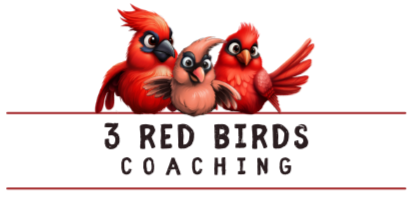So, Strong Doesn’t Mean You Have To Fly Solo? Even Superheroes Need Backup (And a Nap)
We often believe strength means doing it all ourselves — especially as caregivers. THIS IS AN ABSOLUTE MYTH! Real strength ISN’T flying solo, it’s knowing when to rest, ask for help, and set boundaries. Here’s how to stop wearing exhaustion like a badge of honor and start embracing support.
The Myth of the Lone Hero
When we think superheroes, we have to acknowledge the presence of the sidekicks that also exist. Superman relied on the Justice League. You almost can’t say the name Batman without immediately following it up with Robin. Even Dorothy from The Wizard of Oz had the Scarecrow, Tin Man, Cowardly Lion, and yes, even Toto that functioned much like superheroes.
So why do we — the caregivers, act like we’re supposed to carry it all alone? Somewhere along the line, we were sold this big fat lie that asking for help means we’re weak, failing, not enough, or being judged in some other way.
Instead, we pile on more, wear our exhaustion like armor, and whisper to ourselves: If I can just keep going a little longer, I’ll prove how strong I am. I’ll prove I’m enough.
When “Strong” Becomes Self-Sacrifice
Let’s be honest about that energizer-bunny façade. It’s often just a way to avoid the discomfort of saying no. But no to what, exactly? Usually, it’s the fear of upsetting others, disappointing someone, losing connection to a group, or being labeled “difficult.” At the root of it all is a simple, universal desire: to belong, to fit in, to be accepted. And yet, the endless quest for everyone’s approval? Impossible.
Instead of aiming for the impossible goal of being loved by everyone, we give tirelessly, blurring our boundaries and convincing ourselves we should be able to handle it all. We end up running on fumes, exhausted by a life that never seems to let up.
There’s always one more task, one more person to help, one more burden to carry. It’s like a dog chasing its tail—except the tail is on fire, your phone won’t stop buzzing, and someone just asked, “What’s for dinner?”
And even then, we tell ourselves it’s fine because being tired must mean we’re doing it right… right?
Wrong. It means we’re over-functioning. It means we’ve mistaken doing more for being more.
Real Strength Has Boundaries
Here’s the truth:
You don’t earn your worth by carrying more.
You protect your worth by setting boundaries.
Saying “I need help” isn’t weakness — it’s emotional intelligence.
Saying to others “You can handle that” isn’t neglect — it’s self-respect.
Delegating tasks others can do doesn’t make you less capable, it frees up space for you to be present, rested, and human.
What if I told you that some of the balls you’re juggling will bounce, while others are made of glass? Common sense tells us the glass ones—your health, sleep, time, and energy—will shatter if you don’t protect them. The art of caregiving lies in learning the difference: which balls you can safely let go of, and which you must hold onto tightly.
Permission to Be Human
Here’s your permission slip: You don’t have to do it all.
Look at your endless list today. Find one thing you can hand off, postpone, or simply let go. That single act isn’t giving up — it’s taking care of yourself, which is part of caring for everyone else.
Ask yourself:
What would happen if I believed rest is part of strength?
What if asking for help became my new definition of brave?
Then do the thing — send the text, ask the favor, take the nap.
Because real heroes don’t do it all.
They just know when to call for backup.



